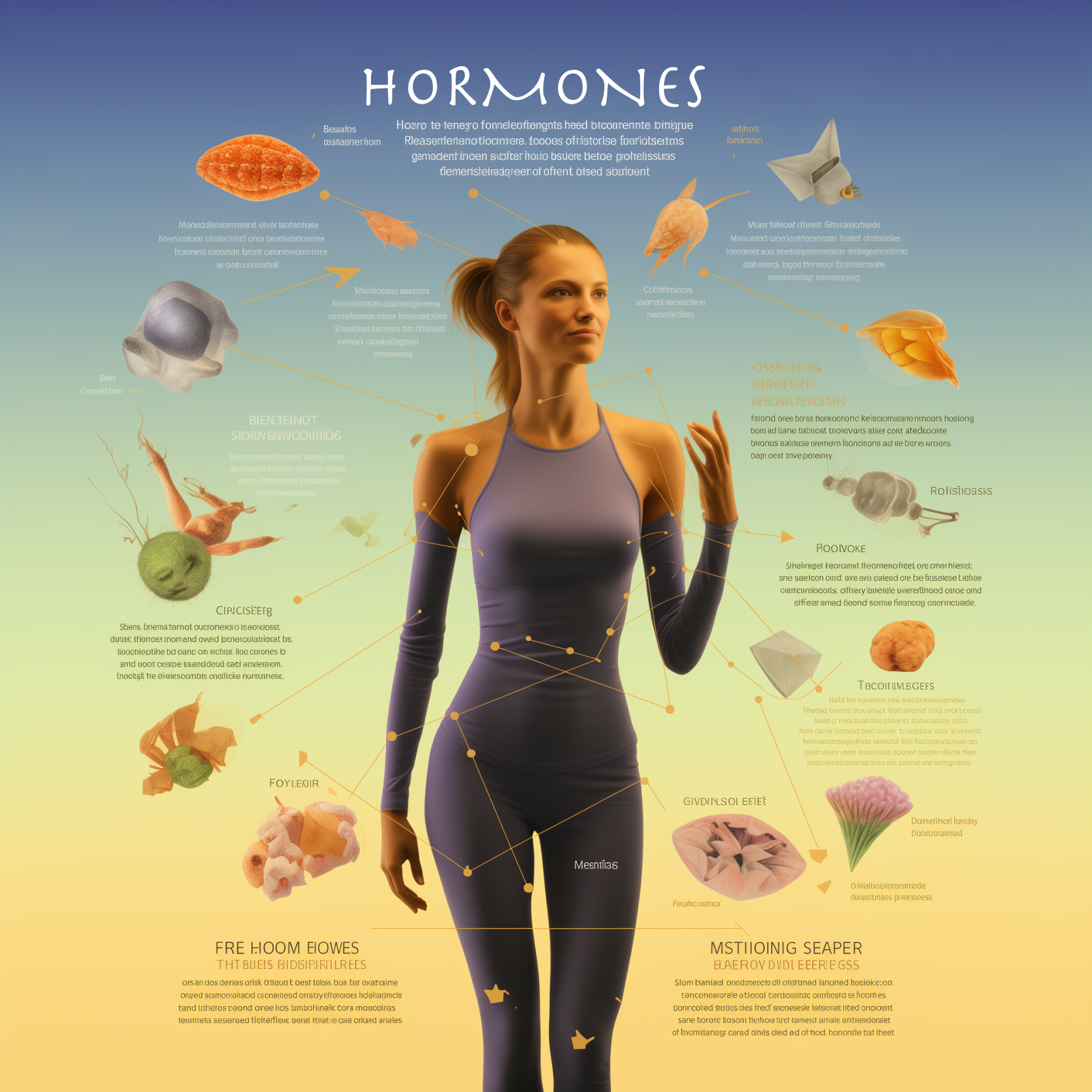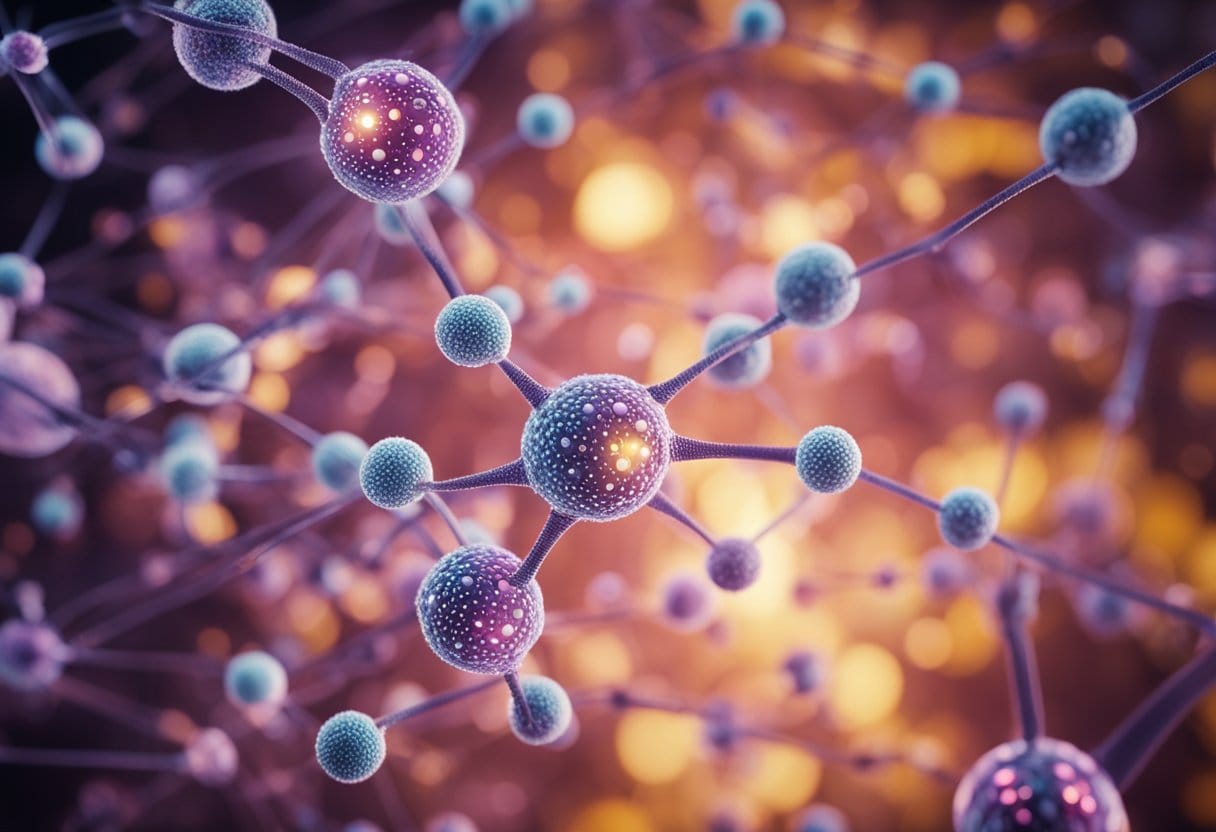You may have heard of hormones, but do you know what they really are and what they do? Hormones are chemical messengers produced by glands in the endocrine system that regulate various bodily functions. They play a crucial role in growth and development, metabolism, mood, and reproduction. Hormonal imbalances can lead to a range of health problems, from acne and weight gain to diabetes and infertility.
Unlocking the hormonal secrets can help you understand how your body works and how to optimize your health and well-being. By learning about the different hormones and their functions, you can identify potential issues and take steps to address them.
Whether you are dealing with a specific health condition or simply want to feel your best, knowledge is power when it comes to hormones. In this article, we will explore the fascinating world of hormones and provide tips for maintaining hormonal balance.
The Science of Hormones
Into the details of hormones
Understanding Hormonal Function
Hormones are chemical messengers that are produced by the endocrine glands and are responsible for regulating various bodily functions. These chemical messengers are secreted into the bloodstream and travel to target tissues or organs where they bind to specific receptors and trigger a response.
Hormones play a crucial role in maintaining homeostasis, which is the balance of various bodily functions. They regulate a wide range of functions including growth and development, metabolism, reproduction, and mood.

The Endocrine System
The endocrine system is a complex network of glands that produce and secrete hormones into the bloodstream. The major glands of the endocrine system include the pituitary gland, thyroid gland, parathyroid glands, adrenal glands, pancreas, and ovaries/testes.
Each gland produces specific hormones that regulate different bodily functions. For example, the thyroid gland produces hormones that regulate metabolism, while the adrenal glands produce hormones that regulate stress response.
The endocrine system works in conjunction with the nervous system to regulate bodily functions. The hypothalamus, which is part of the brain, acts as a bridge between the two systems and helps to regulate hormone production and release.
In conclusion, understanding the science of hormones is crucial to understanding how our bodies function. Hormones play a vital role in regulating various bodily functions and maintaining homeostasis. The endocrine system is a complex network of glands that produce and secrete hormones into the bloodstream, and each gland produces specific hormones that regulate different bodily functions.
Hormonal Imbalance
Symptoms and Causes
Hormonal imbalance refers to an abnormality in the levels of hormones in the body. It can be caused by various factors such as stress, poor diet, lack of exercise, genetics, and certain medical conditions. Some of the common symptoms of hormonal imbalance include:
- Irregular periods in women
- Mood swings
- Fatigue
- Weight gain or loss
- Acne
- Hair loss
- Reduced sex drive
If you experience any of these symptoms, it is important to consult a healthcare professional who can help identify the underlying cause and provide appropriate treatment.
Impacts on Health
Hormonal imbalance can have a significant impact on your overall health. It can increase your risk of developing conditions such as diabetes, osteoporosis, and cardiovascular disease. It can also affect your mental health and lead to depression, anxiety, and other mood disorders.
In addition, hormonal imbalance can affect your reproductive health. In women, it can lead to infertility, irregular periods, and other reproductive problems. In men, it can cause low testosterone levels, reduced sperm count, and other fertility issues.

Maintaining a healthy lifestyle, including a balanced diet, regular exercise, and stress management, can help prevent hormonal imbalances. If you suspect that you may have a hormonal imbalance, it is important to seek medical attention to address the underlying cause and prevent further health complications.
Unlocking Hormonal Secrets
Hormones are the chemical messengers that regulate various bodily functions, including growth and development, metabolism, and reproduction. Unlocking the hormonal secrets can help you maintain a healthy hormonal balance, which is essential for overall health and wellbeing.

Role of Diet and Lifestyle
Your diet and lifestyle can have a significant impact on your hormonal balance. Consuming a diet rich in whole foods, including fruits, vegetables, whole grains, and lean proteins, can help regulate your hormones. Additionally, avoiding processed and sugary foods can help prevent insulin resistance, which can lead to hormonal imbalances.
Regular exercise is also essential for maintaining a healthy hormonal balance. Exercise can help reduce stress, which can lead to the production of cortisol, a stress hormone that can disrupt your hormonal balance. Exercise can also increase the production of endorphins, which can help regulate your mood and reduce the risk of depression and anxiety.
Importance of Sleep and Stress Management
Getting enough sleep is crucial for maintaining a healthy hormonal balance. Sleep deprivation can disrupt the production of hormones, including cortisol, growth hormone, and melatonin. Additionally, chronic stress can lead to the production of cortisol, which can disrupt your hormonal balance.

Stress management techniques, such as meditation, yoga, and deep breathing, can help reduce stress and promote relaxation. Additionally, getting enough sleep and maintaining a regular sleep schedule can help regulate your hormones and promote overall health and wellbeing.

Unlocking the hormonal secrets requires a holistic approach that includes a healthy diet, regular exercise, stress management, and adequate sleep. By taking care of your body and mind, you can maintain a healthy hormonal balance and promote overall health and wellbeing.
Hormonal Therapies
Medical Interventions
If you are experiencing hormonal imbalances, your doctor may prescribe hormonal therapies to help regulate your hormones. These therapies can come in the form of pills, patches, creams, or injections. The type of therapy recommended will depend on your specific hormonal imbalance and your overall health.

One common hormonal therapy is hormone replacement therapy (HRT), which is often used to treat menopause symptoms. HRT involves taking estrogen and progesterone to replace the hormones that your body is no longer producing. However, HRT may increase the risk of certain health problems such as breast cancer, blood clots, and stroke. Your doctor will discuss the risks and benefits of HRT with you before prescribing it.
Another type of hormonal therapy is anti-androgen therapy, which is used to treat conditions such as acne, hirsutism, and polycystic ovary syndrome (PCOS). Anti-androgens work by blocking the effects of male hormones in the body. Some common anti-androgens include spironolactone and flutamide.
Natural Remedies
In addition to medical interventions, there are also natural remedies that may help regulate your hormones. These remedies include:

- Dietary changes: Eating a balanced diet with plenty of fruits, vegetables, and whole grains can help regulate your hormones. Avoiding processed foods, sugary drinks, and alcohol may also be beneficial.
- Exercise: Regular exercise can help regulate your hormones and improve your overall health. Aim for at least 30 minutes of moderate exercise most days of the week.
- Stress management: Chronic stress can disrupt your hormones. Practicing stress-reducing activities such as yoga, meditation, or deep breathing can help regulate your hormones.
- Herbal supplements: Some herbs such as black cohosh, dong quai, and evening primrose oil may help regulate hormones. However, it's important to talk to your doctor before taking any herbal supplements as they can interact with other medications.
Overall, hormonal therapies can be effective in treating hormonal imbalances. However, it's important to work with your doctor to find the right treatment plan for you. Additionally, natural remedies may help regulate hormones and improve your overall health.
Conclusion
Understanding the hormonal secrets of the body is crucial for maintaining good health. By unlocking these secrets, you can optimize your hormone levels and improve your overall well-being.
By implementing these strategies, you can help regulate your hormone levels and prevent imbalances that can lead to a variety of health issues. Additionally, working with a healthcare professional can help you identify any underlying hormonal issues and develop a personalized plan to address them.
Remember, your hormones play a crucial role in your overall health and well-being. By taking steps to unlock their secrets, you can optimize your hormone levels and enjoy a healthier, happier life.
Until Next, Stay Vibrant!
Olivia





